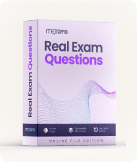ACFE CFE - Fraud Prevention - Certified Fraud Examiner - Fraud Prevention Exam
Page: 2 / 52
Total 256 questions
Question #6 (Topic: Exam A)
All of the following are explicitly prohibited by the ACFE Code of Professional Ethics EXCEPT:
A. Engaging in behavior that is against the law
B. Participating in conduct that could be considered unethical
C. Accepting assignments where there are undisclosed conflicts of interest
D. Giving opinions regarding technical matters
Answer: D
Question #7 (Topic: Exam A)
During a fraud risk assessment, the assessment team determines that it would like to observe the interactions among several employees as they collectively discuss the organization’s current fraud awareness training. Which of the following techniques would be most helpful for the team to use in gathering this information?
A. Interviews
B. Focus groups
C. Surveys
D. Anonymous feedback mechanisms
Answer: D
Question #8 (Topic: Exam A)
Smith, a retail sales manager, wants to decrease the level of cash register over-and-short discrepancies among his sales team. According to behaviorist theories, which of the following options would be the most effective way for Smith to encourage his team members to keep their cash drawers in balance?
A. Take away an hour of paid time off for each time the drawer is over or short
B. Publicly call out and criticize employees whose cash drawers are over or short
C. Offer a bonus to anyone whose drawer reconciles perfectly for sixty days
D. Demote employees who continue to have reconciliation discrepancies
Answer: C
Question #9 (Topic: Exam A)
Glenda, an internal auditor, and Bridgette, an accounts receivable clerk, have had several heated disagreements over accounting procedures and policies. Glenda has just been told that she will be the lead on the company’s fraud risk assessment. During the fraud risk assessment, Glenda should:
A. Confront Bridgette about the disagreements and discuss how they increase the department’s risk of fraud
B. Have someone else to perform the fraud risk assessment work related to the accounts receivable department’s activities
C. Include her disagreements with Bridgette as a factor when assessing the risk of fraud in the accounts receivable department
D. Automatically designate the accounts receivable department as a high-risk area
Answer: B
Question #10 (Topic: Exam A)
Which of the following statements is MOST ACCURATE regarding an effective system of anti-fraud controls?
A. It fully eliminates the risk of fraud by removing opportunities for misbehavior
B. It focuses more on preventive controls than detective controls
C. It prioritizes implementing detective controls over preventive controls
D. It deters fraudsters by increasing the perception that fraud will be detected
Answer: B
